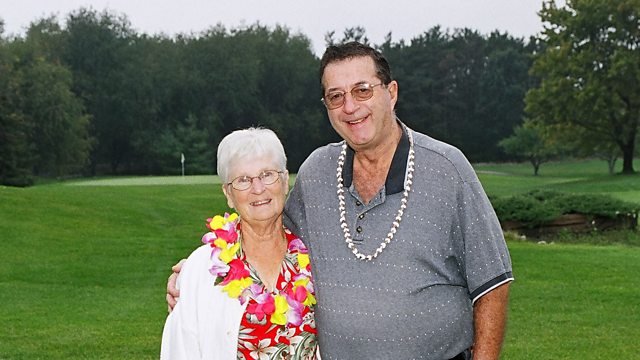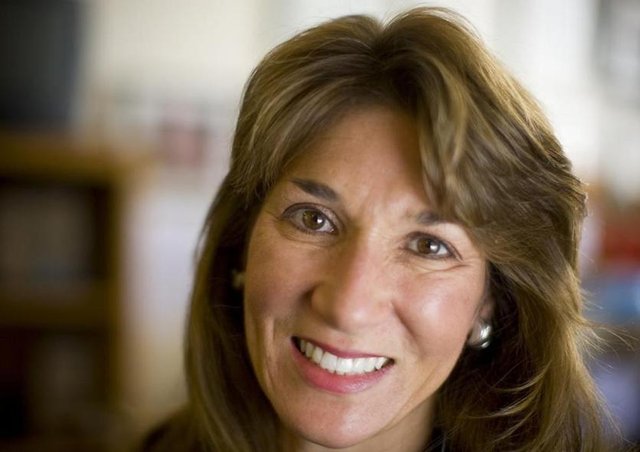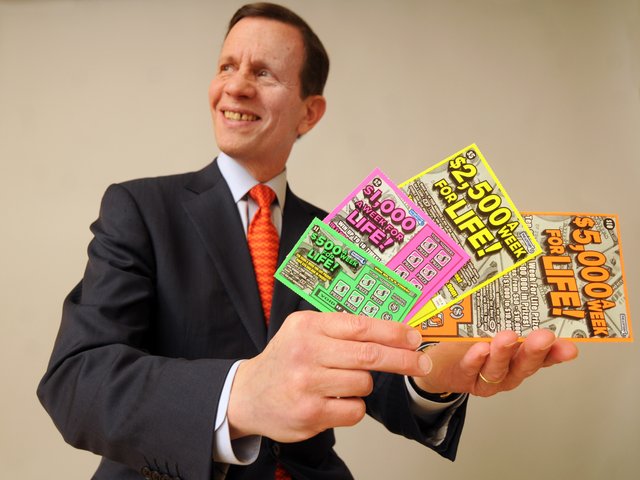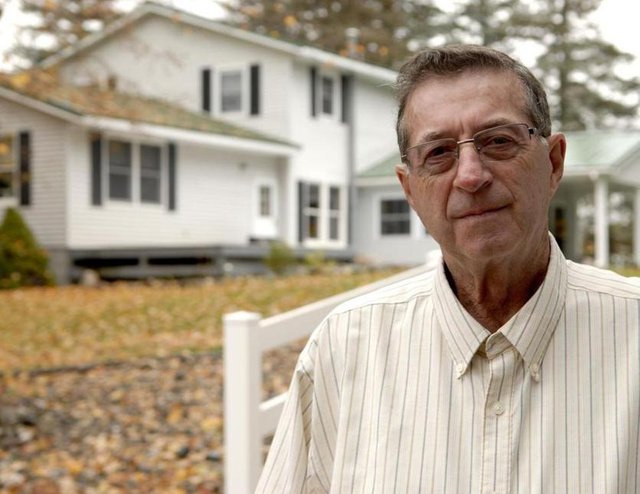Beating the Lottery Odds - Part Five
A retired couple had quite legally made millions after finding a flaw in a lottery game, but things would turn sour from an unexpected source.

Marge and Jerry Selbee. Image: BBC
In Part 4, retired couple Jerry and Marge Selbee had seen off some stiff competition from other betting groups all exploiting a flaw found in a Massachusetts lottery. So they didn't expect an entirely different party to put a spoke in the wheel.
As it played out
Jerry and Marge Selbee had made millions of dollars from the Cash Winfall lottery game run by the Massachusetts State Lottery by exploiting the flaw Jerry had found in the game. In 2003, Jerry discovered the math error in the Windfall game run by the Michigan Lottery and they played that game until it was shut down by the Lottery in 2005. No reason was given for this, and there was certainly nothing that the Selbees had done to point fingers at.
In the same year, Jerry discovered the same flaw in the Cash Winfall lottery game run by the Massachusetts State Lottery. Marge and Jerry printed the tickets in two convenience stores in western Massachusetts. It was all perfectly legal, and although they had technically broken two very minor rules, no action was taken by lottery officials. In fact. they had been complimented on how well they ran their betting operation.
There were at least two other betting groups exploiting the same flaw in the WinCash game—a group of MIT students led by James Harvey, and a group led by Ying Zhang from Boston College. The huge number of tickets being bought by these three groups caught the attention of the lottery officials, but only in terms of data. No law was being broken and if any lottery rules were being broken, a blind eye was turned to them. After all, it was in the lottery's interest to get high ticket sales volumes. Over 35% of each dollar spent went directly to the lottery to fund its social programs.
The MIT and Zhang groups seemed not to have played the game as cleanly as the Selbees. The MIT students had manipulated the game to force other players out (countered by Jerry) and had tried to collude with the Selbees (rejected by Jerry). The Zhang group seemed to break more significant rules by scanning betting slips on borrowed money.

Andrea Estes, Boston Globe. Image source
Spotlight
In June 2011, Andrea Estes—a reporter with the famed Spotlight investigative team of the Boston Globe—received a tip from one of her sources in state government. Something peculiar was going on with the lottery. The tipster had noticed that enormous quantities of tickets were being sold in Sunderland and it seemed the players were from out of state. Estes looked it up and came across GS Investment Strategies LLC, the Selbees' company housing the betting group.
From what she learned about the betting group's activities, she guessed that the players would be busy just before the next roll-down. On July 12, 2011, she found Marge and Paul Mardas—the owner of Billy’s Beverages—printing lottery tickets in the store. Marge refused to say anything to her. Jerry, too, didn't want to talk when Estes arrived at Jerry's Place.
This only increased Estes's suspicion that something was not right. So she dug deeper into the records and found the MIT students' betting group. When she asked the lottery officials for comment they simply claimed ignorance. This didn't fool Estes. “The lottery was really sleazy about the whole thing,” she said. “They were quite aware this was going on, and they acted shocked when I told them about it.”
Things escalated when Steven Grossman, the state treasurer, heard about it. He ordered a crackdown on the betting groups. Seven convenience stores had their licenses suspended, including Billy’s Beverages and Jerry’s Place.
The story breaks
Estes's story broke on July 31. In it, she laid out exactly how it was done. Her main contention was that normal lottery players were subsidising the big groups exploiting the roll-down flaw. She quoted Srivastava, the Canadian statistician: “Cash WinFall isn’t being played as a game of chance. Some smart people have figured out how to get rich while everyone else funds their winnings.”
The story caused a local and then a national sensation. All the large media organisations picked it up, pushing the unfairness-to-the-common-man angle. The Boston Globe thundered, quite incorrectly, that lottery players have a right to expect that the money spent goes to local cities and towns, implying that it wasn't.

Steven Grossman. Image source
The game is up
Grossman announced that Cash WinFall would be phased out within a year and, until then, each store would be limited to $5,000 in ticket sales per day.
The news shocked Jerry. He had been portrayed as a cheater, yet he had played by the rules. He and Marge resolved to carry on playing as long as they could. But with their usual stores unavailable and other stores very sceptical of their activities—one even called the police—that was quite difficult to do.
It seems that Jerry was being demonised even though he had been quite open about what he and Marge were doing. The other betting groups had stayed hidden and had broken the rules, in Jerry's opinion. So he called up Estes and gave her all the details, including how the MIT group had manipulated the game in forcing roll-downs. There was general outrage when this story came out. Grossman announced there would be a full enquiry into lottery procedures.
Some vindication
Although the report didn't completely exonerate the Selbees (there were the minor infringements of printing the tickets themselves and doing so outside normal business hours), it largely vindicated them.
In particular, the big-guy-screws-over-little-guy narrative didn't hold up to scrutiny:
- No evidence was found that anyone was harmed—neither the small players nor the taxpayers
- Rather than deprive the state of money, the large groups had pumped some $40 million into the lottery of which $16 million went in as revenue to the state
- Except in the case where the MIT group forced a roll-down, no one's odds of winning had been affected.
In short, the lottery had worked as it was designed to do. In fact, Reuters argued that Cash Winfall was possibly more fair than other lottery games since it was not just a “tax” on the poor—the rich were “taxed” too.
The final tally
Here are Marge and Jerry's final numbers from their betting spree:
| State | Times Played | Wagered | Won | Profit |
|---|---|---|---|---|
| Michigan | 12 | $8.1 million | $2.65 million | $850,000 |
| Massachusetts | 43 | $17.3 million | $24.2 million | $6.9 million |
| TOTAL | $7.75 million |
It's quite astounding when you think that they had to print out 1.7 million tickets (10 numbers to a ticket) and then sort through all of them (twice!) The bulk of this work was done in Massachusetts, a 24-hour round trip from their home in Evart, Michigan.

Jerry Selbee. Image source:
The Selbees at home
Marge and Jerry are still going strong. Jerry now runs his construction financing business. They continue to stay in contact with their betting group, regularly getting together for social events.
The Selbees and their betting group still defend their betting activities, believing that anyone given the same opportunity would make the same decisions.
“If you figured it out and you could do this, would you do it?”, said Jerry.
“I’m just asking. Would you?”
Previous posts in this series: Part 1, Part 2, Part 3, Part 4
References:
Boston Globe: Lottery officials helped high rollers see windfalls
Huffington Post: Jerry and Marge Go Large
Reuters: Why Cash WinFall is a model for future lottery games
Also posted on Weku, @tim-beck, 2019-01-08